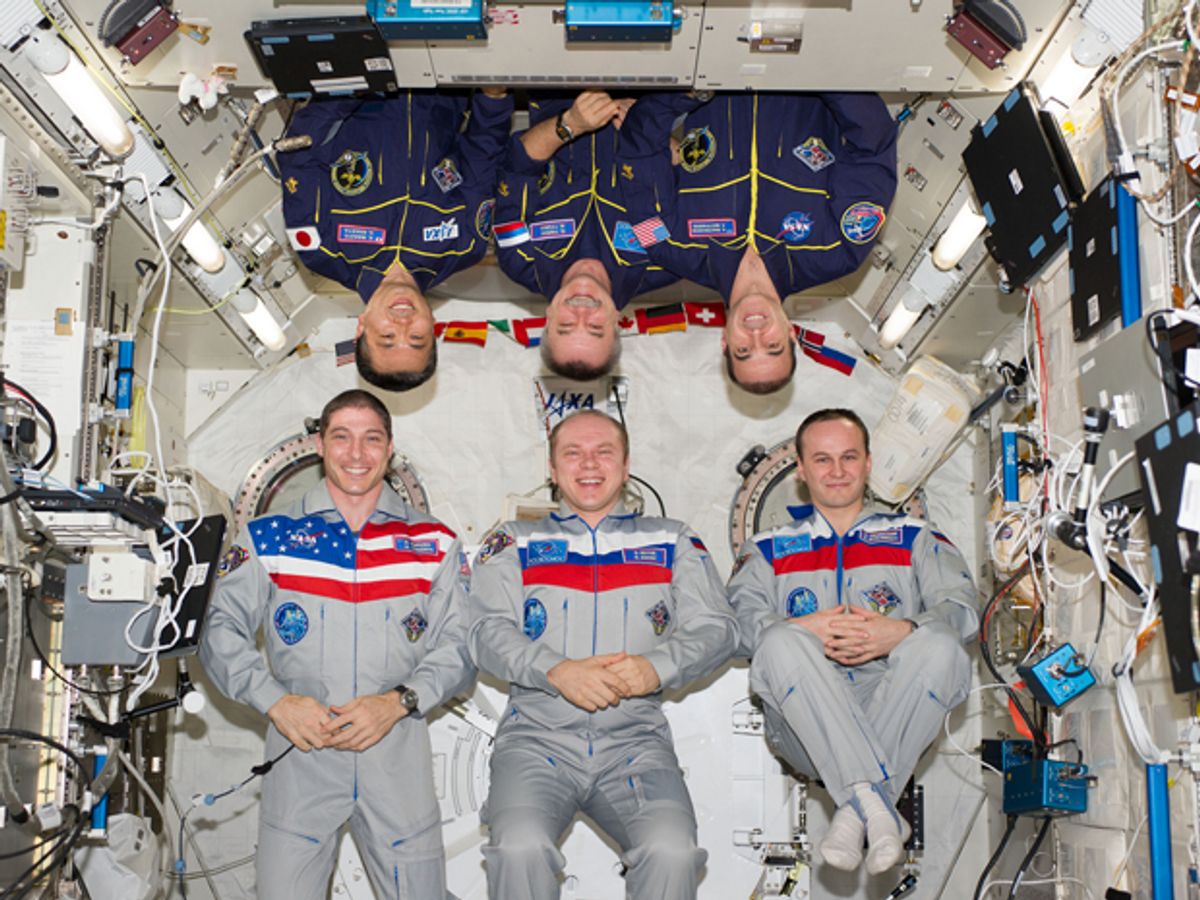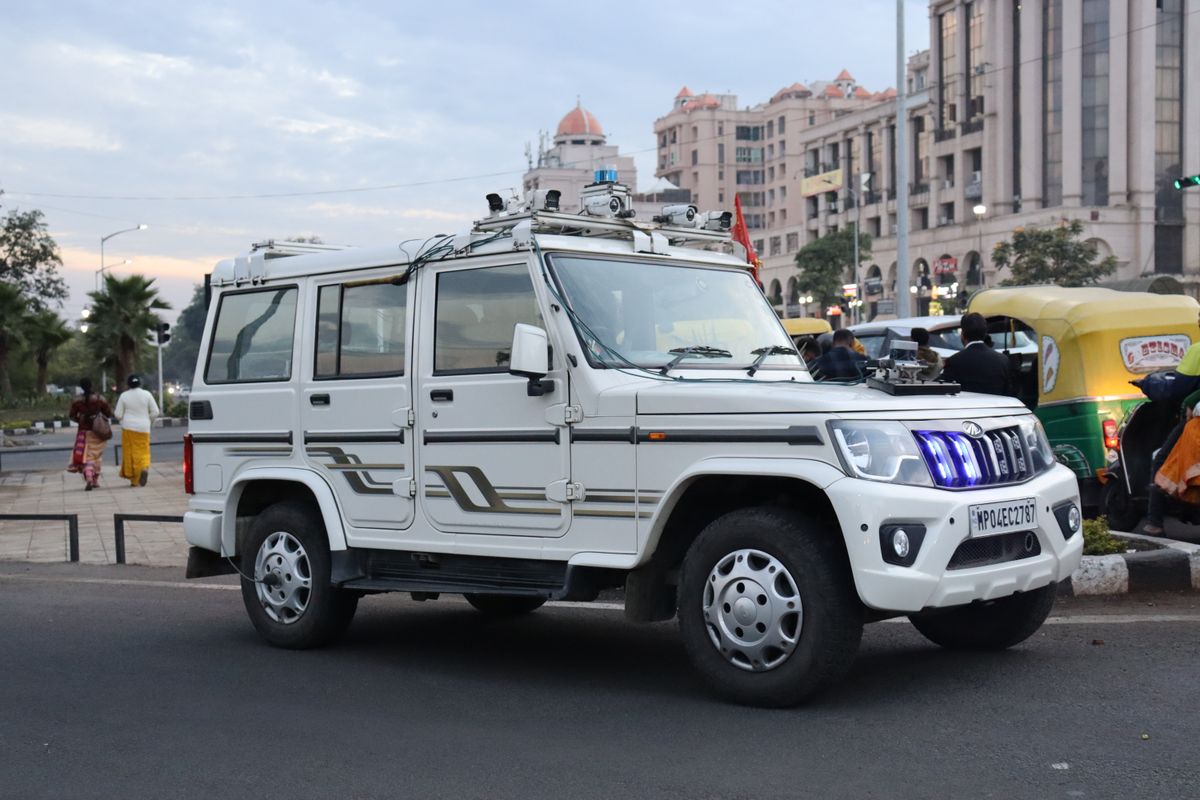A spirit of scientific cooperation has long existed between U.S. and Russian space agencies even when the two countries faced off as hostile adversaries during the Cold War. So NASA's recent decision to suspend some ties with its Russian counterpart seems to come as a blow to those who take pride in placing space exploration above politics.
NASA's surprise action comes as part of the U.S. government's disapproving stance toward Russia's dispute with Ukraine over Crimea. On 3 April, the U.S. space agency posted a statement on its social media accounts explaining why it had suspended many cooperative activities with the Russian space agency (Roscosmos). NASA said it would continue to work with Russia on maintaining operations aboard the International Space Station—orbital home away from home for both U.S. astronauts and Russian cosmonauts—but also emphasized a renewed focus on ending U.S. dependence upon Russian rockets for launching its astronauts into space.
"Given Russia's ongoing violation of Ukraine's sovereignty and territorial integrity, NASA is suspending the majority of its ongoing engagements with the Russian Federation. NASA and Roscosmos will, however, continue to work together to maintain safe and continuous operation of the International Space Station. NASA is laser focused on a plan to return human spaceflight launches to American soil, and end our reliance on Russia to get into space. This has been a top priority of the Obama Administration's for the past five years, and had our plan been fully funded, we would have returned American human spaceflight launches—and the jobs they support—back to the United States next year. With the reduced level of funding approved by Congress, we're now looking at launching from U.S. soil in 2017. The choice here is between fully funding the plan to bring space launches back to America or continuing to send millions of dollars to the Russians. It's that simple. The Obama Administration chooses to invest in America—and we are hopeful that Congress will do the same."
Early news of NASA's decision came from an internal memo leaked to The Verge. The tech news publication also interviewed an anonymous NASA scientist who vented frustration about international politics seeping into NASA's official activities.
"NASA's goals aren't political," said the NASA scientist who spoke to The Verge on condition of anonymity. "This is one of the first major actions I have heard of from the U.S. government and it is to stop science and technology collaboration... You're telling me there is nothing better?"
Of course, space exploration has never been truly free of political influence—the space age began as a frenzied race between two paranoid superpowers during the Cold War. U.S. and Russian space scientists have a long and admirable history of keeping back channels open even when their countries were officially sworn enemies. But official cooperation aimed at achieving U.S. and Soviet goals in space waxed and waned depending on political tensions on Earth. NASA and Roscosmos have largely forged a cooperative new chapter in space exploration for the post-Cold War era, but NASA's recent decision represents a reminder of darker times in U.S. relations with Russia.
NASA's decision to cut some Russian ties will almost certainly mean additional pressure to speed up its plans for resuming U.S. human spaceflight, rather than sending U.S. astronauts to Russia for launches to the space station. The NASA statement referred to its plans to use commercial spaceflight partners such as Elon Musk's SpaceX for launching astronauts from U.S. soil by 2017. NASA also took the opportunity to prod Congress for failing to have fully funded the space agency's plans—funding that would have allowed NASA to aim for U.S. human spaceflight launches by next year.
But the U.S. space agency's harder stance doesn't necessarily mean NASA scientists will stop unofficially talking with their counterparts in Russia, as evidenced by their past history of cooperation. U.S. researchers also recently showed their commitment to international cooperation by threatening to boycott a major conference in December because of a short-lived NASA rule banning Chinese researchers from participating.
Jeremy Hsu has been working as a science and technology journalist in New York City since 2008. He has written on subjects as diverse as supercomputing and wearable electronics for IEEE Spectrum. When he’s not trying to wrap his head around the latest quantum computing news for Spectrum, he also contributes to a variety of publications such as Scientific American, Discover, Popular Science, and others. He is a graduate of New York University’s Science, Health & Environmental Reporting Program.



